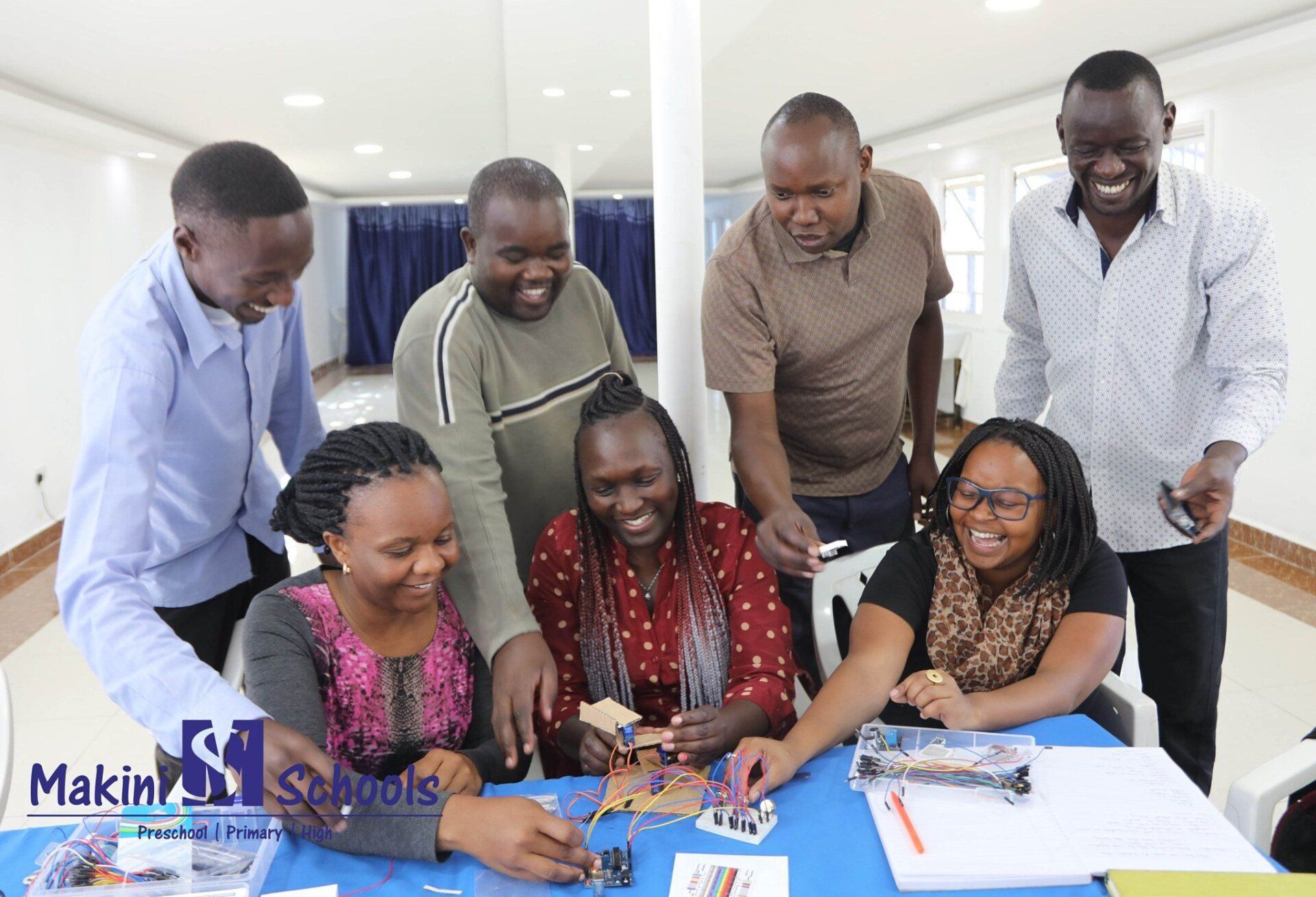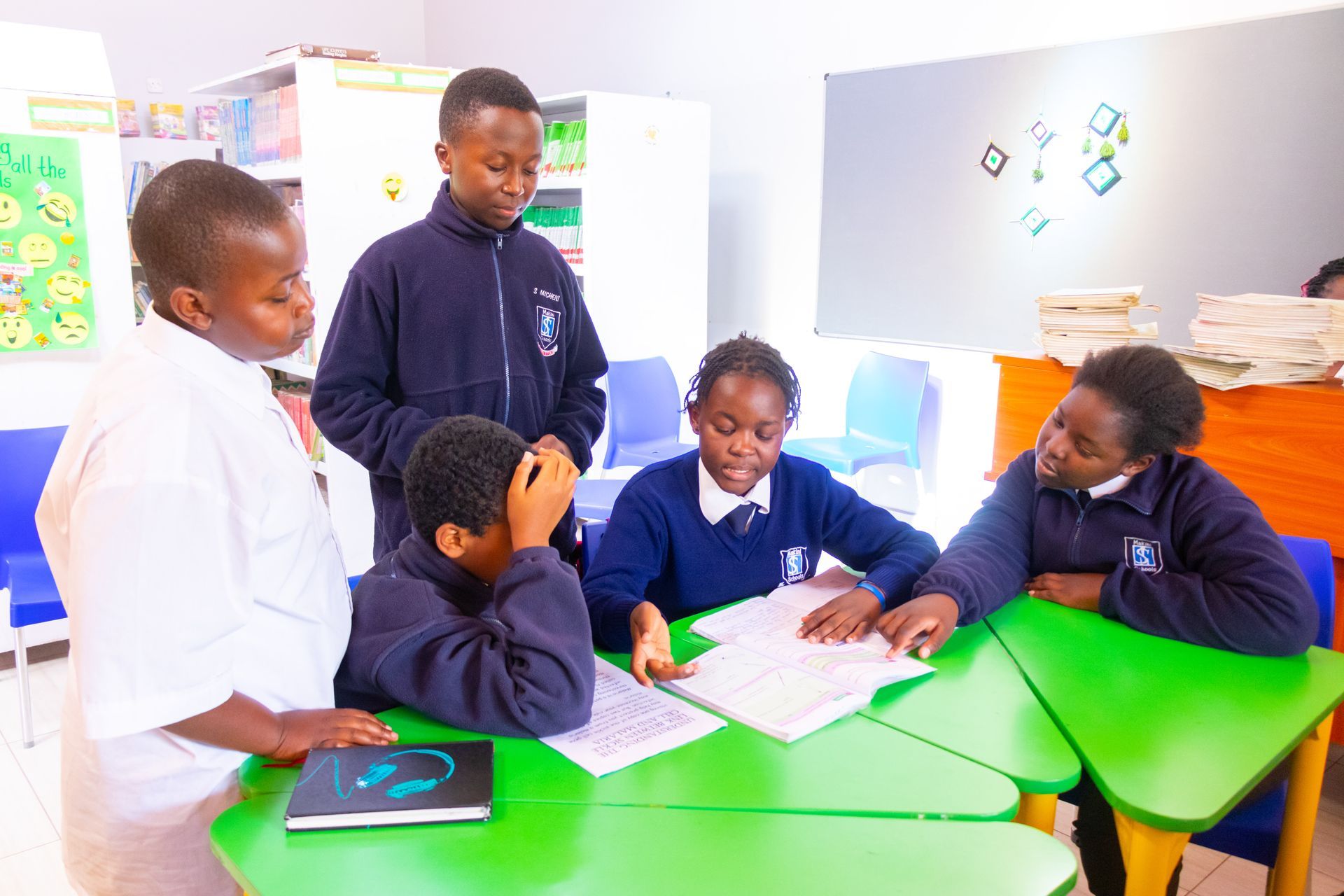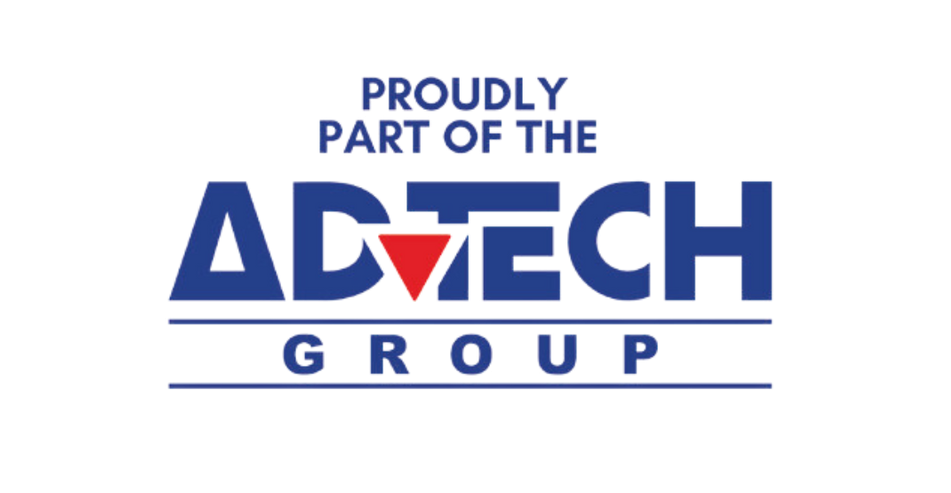Revolutionizing Junior Secondary Education in Kenya Through Technology
In Kenya’s educational landscape, many schools such as Makini are embracing technology to transform the learning experience for their students. To support digital integration in education, a significant investment of Sh.150 million has been allocated for infrastructure upgrades across all Makini Schools in Kenya. This will enable the schools to expand Wi-Fi accessibility both inside and outside classrooms, install state-of-the-art projectors, and sound bars, ensuring a seamless transition to online lessons when needed. Additionally, Makini teachers will be equipped with the latest devices and training to enhance their teaching capabilities. As the digital age continues to reshape every single aspect of society, educators are harnessing the power of technology to enhance teaching and learning in unprecedented ways.
The implementation of technology in the classroom is more than just a trend. It is a strategic investment in the future of education. With the support of government initiatives and private partnerships, schools are equipping classrooms with computers, tablets, interactive whiteboards and high-speed internet access. This infrastructure is the foundation for an interactive, dynamic and engaging learning environment where students can explore, collaborate and innovate like never before.
What are the key benefits of integrating technology in junior secondary education?
1. A personalized learning experience
One of the most significant benefits of technology in education is its ability to offer students a more personalized learning experience. Teachers can tailor their instructions to meet the diverse needs and learning styles of individual students. Education software and learning platforms can enhance learning and further cement concepts into the children’s minds.
2. Extra help is available when needed
Technology also provides extra practice for learners who might be struggling. Through enrichment activities, teachers can diversify their lessons and make sure that no child is left behind.
3. Collaboration and communication are enhanced
Technology in the classrooms of junior primary schools also fosters collaboration and communication between students, both inside and outside the class. Google Classroom and Microsoft Teams for example, enable students to work together on projects. They can share ideas and get feedback in real-time. Collaborative learning approaches enhance academic outcomes and promote teamwork, problem solving and communication skills.
4.Access to resources and opportunities
Students at schools like Makini, have access to online libraries, educational websites and multimedia resources. They can explore a wealth of information and even go on virtual field trips. With interactive simulations and educational games, learning comes alive in ways that traditional textbooks could never capture.
What challenges do Kenyan schools face in adopting educational technology?
While Makini School is fortunate to be able to adopt blended learning through technology, not all schools in Kenya have the means. Lack of resources and investment is often the biggest hurdle faced by schools across the country. Other factors include inadequate infrastructure, the lack of affordable and adequate internet bandwidth, a lack of e-learning policies as well as the limited technical skills of staff. Having said that, many schools in Kenya (with the help of government initiatives) have adopted educational technology and continue to strive for this enhanced learning and experience in their classrooms.
How is Makini School implementing technology into its curriculum?
Makini School is rolling out AdvLearn, an innovative digital learning tool that uses adaptive learning technology to enhance learning outcomes. ADvLearn offers a personalized approach to learning by empowering teachers to identify and address knowledge gaps in key subjects. It elevates students’ success and academic excellence through the use of AI-generated data insights. This ground-breaking innovation is set to be fully operational by May 2024 in all Makini Schools.
ADvLearn creates a secure online environment that complements traditional classroom learning by offering personalized assignments to learners, enabling real-time progress monitoring by teachers. The platform also equips teachers with precise insights into each student's strengths and weaknesses. This gives teachers the ability to tailor their teaching to suit the needs of learners, addressing specific learning gaps. As a result, it fosters a more effective educational experience.
Data analysis conducted by ADvTECH reveals that students who regularly engage with the platform experience marked improvements in their subject grades, with progress rates between 15% and 29%. This indicates a potential effectiveness in embracing technology in education.
Makini School focuses on quality education while moving with global trends. E-learning has been incorporated into a learning model being referred to as Blended Learning or Hybrid Learning. Hybrid Learning combines traditional classroom work with online courses. Technology is integrated to boost learning and ensure that students are skilled for the future.
Blended Learning is a model that combines face-to-face and online instruction in ways that customize the learning experience for each student while making content accessible. Today’s students need to create, collaborate and share digital content responsibly. At Makini, we understand just how important online literacy skills are and that students need to know how to use it all responsibly. By incorporating technology into classrooms, Makini offers its students a well-rounded education that will set them apart in the future.
As more and more of our lives become dependent on technology, it is of the utmost importance for students to experience technology in their daily lives. By integrating technology into the curriculum at Makini, we are not only preparing students for the digital age but also expanding their horizons and fostering a love for lifelong learning. For more information about Makini School, please visit our website https://www.makinischool.ac.ke/













